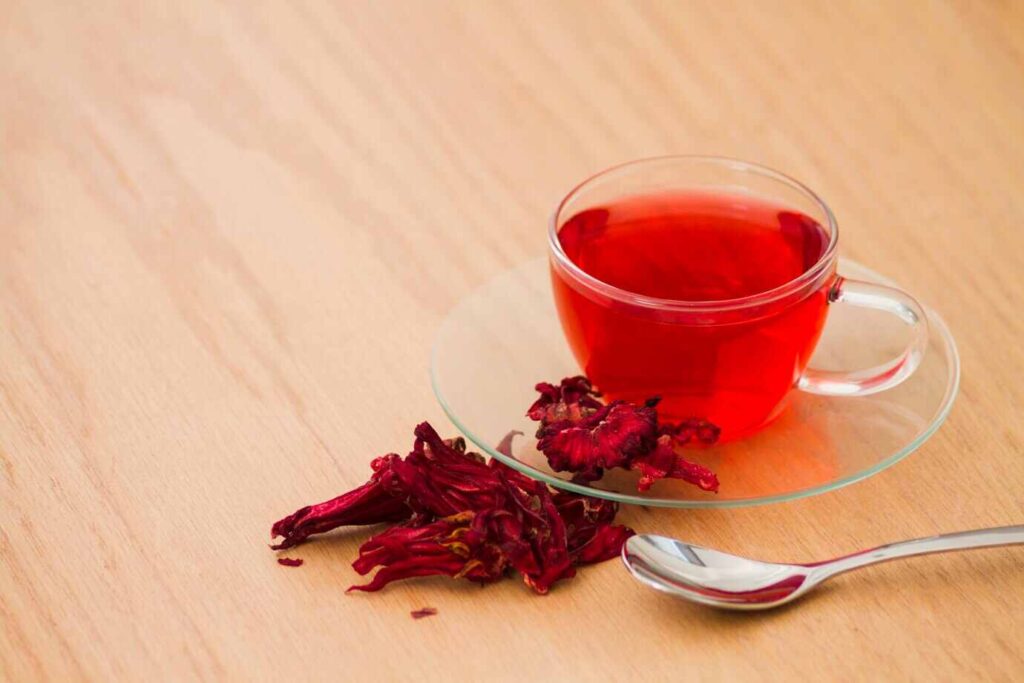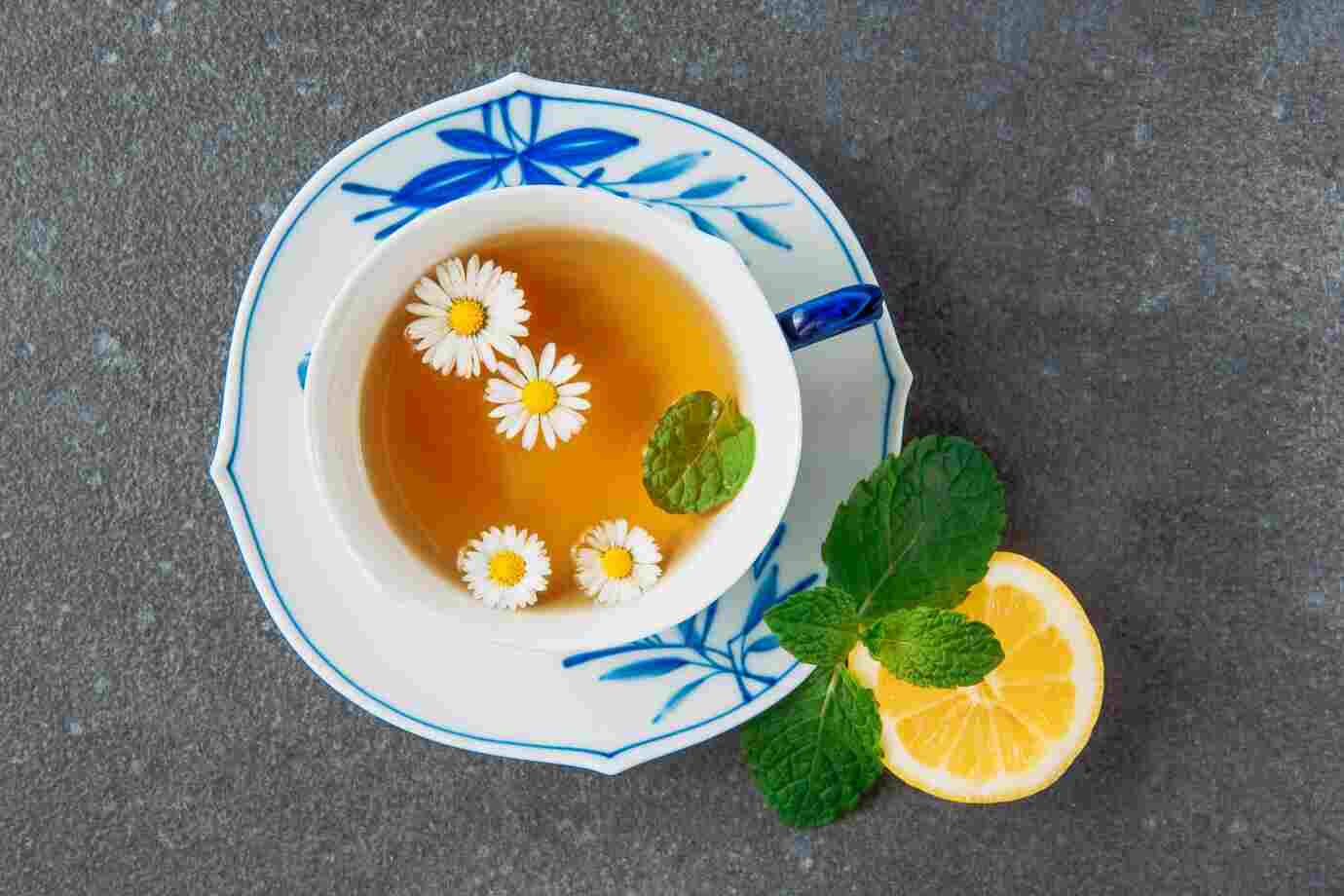Ever wonder if there’s a simple way to feel better without pills or caffeine? Herbal teas might be just what you need. These drinks don’t come from regular tea leaves. Instead, they come from herbs, roots, flowers, and seeds. That’s what makes them so special—and so healthy.
People all over the world drink herbal teas to relax, sleep better, or feel less stressed. Some use them to ease a sore throat or calm an upset stomach. Others enjoy them just for the flavor. The best part? Herbal teas don’t contain caffeine, so you can enjoy them anytime—day or night.
In this article, we’ll explore the top herbal teas for health. We’ll look at what each tea does for your body and why so many people trust these natural remedies. Whether you’re new to herbal teas or just want to try something different, you’re in the right place. Ready to sip your way to better health?
What Makes Herbal Teas Healthy?
Herbal teas are more than just warm drinks. They offer real health benefits. These teas come from natural sources like leaves, flowers, roots, and seeds. They do not contain caffeine—except for yerba mate or a few special blends. That’s why many people drink them day or night without worry.
One big reason people love herbal teas is their nutrients. These teas are packed with antioxidants. Antioxidants help your body fight stress and damage from the environment. Many also have anti-inflammatory compounds. These may reduce swelling and ease pain. Drinking herbal tea can feel like giving your body a gentle boost.
The benefits of herbal teas go beyond modern science. Many cultures have used them for hundreds of years. People in China, India, and Native American traditions often turned to herbal teas for healing. These drinks were common natural health remedies long before modern medicine came around.
Today, we still follow those same ideas. Herbal teas are an easy and safe way to support your health. They don’t replace medicine, but they do help. They calm your nerves, settle your stomach, and support your immune system. Isn’t it amazing how something so simple can do so much?
Top 7 Herbal Teas and Their Health Benefits
Herbal teas do more than taste good. Many offer real health benefits backed by research. Let’s explore seven top choices, what they help with, and how to enjoy them.
1. Chamomile Tea – A Natural Sleep Aid
Chamomile is one of the best herbal teas for anxiety and sleep. It has calming effects that help your mind and body relax.
A study in Phytomedicine showed chamomile helps people sleep better. Another study found it reduced mild anxiety symptoms in adults.
How to enjoy it: Steep dried chamomile flowers in hot water for 5–10 minutes. Drink before bed to help you wind down.
2. Peppermint Tea – Eases Digestion
Got a bloated or upset stomach? Peppermint tea may help. It relaxes the muscles in your digestive tract and can ease gas or cramps.
Research in the Journal of Gastroenterology found peppermint helps with symptoms of irritable bowel syndrome (IBS). It works by calming the gut muscles.
How to enjoy it: Steep fresh or dried peppermint leaves. Drink it warm after meals or when your stomach feels uneasy.
3. Ginger Tea – Fights Inflammation and Nausea
Ginger tea is one of the top anti-inflammatory teas. It contains gingerol, a compound that helps fight swelling and pain.
Studies in Evidence-Based Complementary and Alternative Medicine show ginger tea can reduce nausea from motion sickness, pregnancy, or chemo. It also eases joint pain and muscle soreness.
How to enjoy it: Slice fresh ginger root and boil it in water for 10–15 minutes. Add honey and lemon for extra flavor and health perks.
4. Hibiscus Tea – Supports Blood Pressure

This bright red tea does more than look pretty. Hibiscus may lower blood pressure, especially in people with mild hypertension.
A study in the Journal of Nutrition showed adults who drank hibiscus tea daily had lower systolic blood pressure. The tea is also full of antioxidants that help your heart.
How to enjoy it: Steep dried hibiscus petals in hot water for 5–10 minutes. Drink it chilled for a tart, refreshing boost.
5. Rooibos Tea – Heart and Antioxidant Support
Rooibos is a caffeine-free tea from South Africa. It’s rich in antioxidants, which fight cell damage and support heart health.
A study published in Public Health Nutrition found rooibos may help improve cholesterol levels. It’s one of the best immune-boosting herbal tea options as well.
How to enjoy it: Brew rooibos like black tea. It has a smooth, earthy flavor and works well with milk or honey.
6. Lemon Balm Tea – Boosts Mood and Focus
Lemon balm comes from the mint family. It’s great for stress, memory, and calm focus.
A study in Neuropsychopharmacology showed people who took lemon balm felt more alert and less anxious. It’s another solid choice among herbal teas for anxiety.
How to enjoy it: Steep fresh or dried leaves for 5–10 minutes. It has a mild lemony flavor and pairs well with green tea or honey.
7. Turmeric Tea – Soothes Joints and Fights Inflammation
Turmeric tea is a star among anti-inflammatory teas. It contains curcumin, which lowers inflammation and may ease joint pain.
A Clinical Rheumatology study found turmeric helped reduce knee pain in people with arthritis. It also supports brain and immune health.
How to enjoy it: Simmer turmeric powder or slices in water for 10 minutes. Add black pepper to help your body absorb the curcumin. A splash of milk and honey makes it smooth and tasty.
Each of these herbal teas offers unique health perks. Some relax your mind. Others calm your gut or ease your pain. Whether you’re looking for immune-boosting herbal tea, something to help you sleep, or a way to feel more balanced, there’s an option for you.
How to Brew Herbal Tea Properly
Brewing herbal tea the right way makes a big difference. If you want the full flavor and health benefits, you need to follow a few simple tips.
First, always use fresh, filtered water. Good water makes a cleaner, better-tasting tea. Next, know that steep times matter. Most herbs need about 5–15 minutes to release their flavors and health compounds. Stronger herbs like ginger may need more time, while lighter herbs like chamomile need less.
Cover your tea while it steeps. This trick helps keep the valuable oils and scents from escaping. Those oils carry a lot of the tea’s power.
Also, be careful with water temperature. Boiling water can hurt delicate herbs like chamomile or lemon balm. Instead, let the water cool for a minute after boiling before pouring it over the herbs.
Want to know the best way to brew herbal teas? Pay attention to the herb type and the steep time. These small steps can make your tea much more effective and enjoyable. Once you know how to make herbal tea the right way, you’ll enjoy every sip even more!
When and How Often to Drink Herbal Tea
Herbal tea works best when you match the tea to your needs. Want better sleep? Try chamomile or lemon balm at night. Need help after a heavy meal? Peppermint or ginger tea can calm your stomach. Feeling stressed? Sip lemon balm or chamomile during a quiet break.
So, how much herbal tea to drink in a day? For most people, 1–3 cups is safe and helpful. This amount gives you the benefits without going overboard. But if you’re using herbal tea for a health problem—like inflammation or high blood pressure—talk to a doctor first. Some herbs can affect medications or cause side effects if overused.
Also, mix things up. Don’t drink the same tea every day. Rotating teas gives your body different benefits and lowers the chance of building a tolerance or getting too much of one compound.
Thinking about herbal tea timing? Morning is great for ginger or turmeric. Midday works well for rooibos or hibiscus. Save chamomile and lemon balm for bedtime. With a little planning, your daily tea habit can support both your body and your mind.
Precautions and Side Effects
Herbal teas are natural, but that doesn’t mean they’re always risk-free. If you’ve ever wondered, “Is herbal tea safe?” the answer is usually yes—but it depends on the herb and your health.
Some herbs can affect medications. For example, hibiscus may lower blood pressure too much if you’re already on medication. Licorice root can raise blood pressure and may not be safe for people with heart issues. Always check with a doctor if you take regular medicine.
Pregnant or breastfeeding? Be extra careful. Many herbal teas are not tested for safety during pregnancy. Teas like chamomile and hibiscus are often avoided unless a healthcare provider says they’re okay.
There’s also the risk of allergies or side effects. Some people react to plants like chamomile or peppermint. Drinking too much of any herb may upset your stomach, cause dizziness, or lead to other mild issues.
To stay safe, start with small amounts. Try one cup a day at first. Watch how your body responds. If you feel fine, you can enjoy more. Understanding herbal tea side effects helps you make smart, safe choices every time you brew a cup.
FAQs
Are herbal teas caffeine-free?
Most herbal teas are naturally caffeine-free, which is why they’re a great option for evening relaxation. However, some blends may include herbs like yerba mate, which do contain caffeine. Always check the label to be sure if you’re avoiding caffeine.
Can herbal teas help with anxiety or sleep?
Yes! Teas like chamomile, lemon balm, and lavender are known to help with relaxation and anxiety relief. Chamomile, in particular, is a great option for better sleep. These teas have calming effects that can soothe your mind and body, helping you wind down before bed.
What’s the best herbal tea for immunity?
If you’re looking for a boost in immunity, try rooibos or ginger tea. Rooibos is rich in antioxidants that support your immune system, while ginger tea has anti-inflammatory properties that help your body fight off illness. Both are great choices for overall wellness.
How long should I steep herbal tea?
Steeping times can vary based on the herb. Most herbal teas should be steeped for 5–10 minutes. Stronger teas like ginger or hibiscus may need longer steeping to release their full flavor and health benefits. For delicate herbs like chamomile, 3–5 minutes is usually enough.
Conclusion
Herbal teas are a simple yet powerful way to support your health naturally. Whether you’re looking to reduce stress, improve sleep, or aid digestion, there’s a tea for every need. The beauty of herbal teas is that they’re soothing, easy to make, and packed with health benefits.
Start by trying one or two varieties, and enjoy the process of discovering which ones work best for you. With so many options to choose from, you’ll find that drinking tea for wellness becomes a pleasant and calming part of your routine.
So go ahead—sip, relax, and experience the wonderful world of healthy herbal teas!
